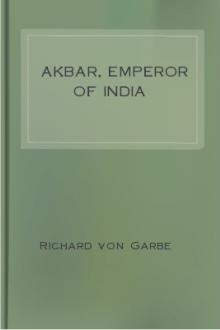Genre History. Page - 17

he laws of a narrow priesthood, and hedged about by a superstitious religion which even laid down rules for art?
For these reasons we know something of Egyptian art and nothing of Egyptian artists, and from all these influences it follows that Egyptian painting is little more than an illuminated alphabet or a child's picture-history. In the hieroglyphics, or writing characters of Egypt, it often occurs that small pictures of certain animals or other objects stand for whole words, and it appears that this idea was carried into Egyptian painting, which by this means became simply a picture chronicle, and never reached a point where it could be called truly artistic or a high art.
ASSYRIA.
The remains of Assyrian painting are so few that they scarcely serve any other purpose than to prove that the Assyrians were accustomed to decorate their walls with pictures. Sometimes the walls were prepared with plaster, and the designs were painted on that; in other cases the painting was done upon the

of the race. All other declarations prior to this were but for dynasties, or were ethnic at most. But those men swept the horizon of humanity. These men called forth, as it were, the oncoming centuries of time, and in their presence declared that all men are created free and equal.
They not only declared the ultimate truth of human rights, but they exhausted the right of revolution. They created a constitution founded upon the will of the people, based upon our great declaration of rights, embracing man's inalienable right to life, liberty, and happiness. The instrument which their genius created was left amendable by the oncoming wants of time, modified in subordinate relations which might be suggested by emergencies and the unfolding of our race. Here then are the great fingers of prophecy pointing to our future.
And we have been equally favored in our population, whether we take the Puritans who landed in New England, the Dutch who landed in New York, or the English who crowded Maryland and

it, likewise, if the daughter-in-law [7] of the Rajah's house had left its seclusion. She was even prepared for this happening. But I did not consider it important enough to give her the pain of it. I have read in books that we are called "caged birds". I cannot speak for others, but I had so much in this cage of mine that there was not room for it in the universe--at least that is what I then felt.
The grandmother, in her old age, was very fond of me. At the bottom of her fondness was the thought that, with the conspiracy of favourable stars which attended me, I had been able to attract my husband's love. Were not men naturally inclined to plunge downwards? None of the others, for all their beauty, had been able to prevent their husbands going headlong into the burning depths which consumed and destroyed them. She believed that I had been the means of extinguishing this fire, so deadly to the men of the family. So she kept me in the shelter of her bosom, and trembled if I was in the least bit unwell.

h all fringed with ferns and creepers. They passed through the arch into a deep, narrow gully whose banks were of stones, moss-covered; and in the crannies grew more ferns and long grasses. Trees growing on the top of the bank arched across, and the sunlight came through in changing patches of brightness, turning the gully to a roofed corridor of goldy-green. The path, which was of greeny-grey flagstones where heaps of leaves had drifted, sloped steeply down, and at the end of it was another round arch, quite dark inside, above which rose rocks and grass and bushes.
"It's like the outside of a railway tunnel," said James.
"It's the entrance to the enchanted castle," said Kathleen. "Let's blow the horns."
"Dry up!" said Gerald. "The bold Captain, reproving the silly chatter of his subordinates ,"
"I like that!" said Jimmy, indignant.
"I thought you would," resumed Gerald "of his subordinates, bade them advance with caution and in silence, because after all there might be some

all just mention; it was at the time whenpress warrants were issued, on the alarm about Falkland Islands.The woman's husband was pressed, their goods seized for some debtsof his, and she, with two small children, turned into the streetsa-begging. It is a circumstance not to be forgotten, that she wasvery young (under nineteen), and most remarkably handsome. Shewent to a linen-draper's shop, took some coarse linen off thecounter, and slipped it under her cloak; the shopman saw her, andshe laid it down: for this she was hanged. Her defence was (I havethe trial in my pocket), "that she had lived in credit, and wantedfor nothing, till a press-gang came and stole her husband from her;but since then, she had no bed to lie on; nothing to give herchildren to eat; and they were almost naked; and perhaps she mighthave done something wrong, for she hardly knew what she did." Theparish officers testified the truth of this story; but it seems,there had been a good deal of shop-lifting ab

d by every one who hasany conception of the spring of a raging tigress anxious for thewelfare of her young. And we may easily surmise the thoughts which thesight aroused in the minds of the Mohammedan nobles in Akbar's train.At that moment many ambitious wishes and designs may have been carriedto their grave.[6]
[Footnote 6: Noer, I, 141.]
The Emperor soon summoned his hot-headed foster-brother Adham Chân tocourt in order to keep him well in sight for he had counted oftenenough on Akbar's affection for his mother Mâhum Anâga to save himfrom the consequences of his sins. Now Mâhum Anâga, her son and heradherents, hated the grand vizier with a deadly hatred because theyperceived that they were being deprived of their former influence inmatters of state. This hatred finally impelled Adham Chân to asenseless undertaking. The embittered man hatched up a conspiracyagainst the grand vizier and when one night in the year 1562 thelatter was attending a meeting of political dignitaries on affairs

ut authority and applied torture to an unconvictedsoldier, and Perrot, who sold liquor by the pint and thehalf-pint in his own house, were unworthy representativesof the crown.
By 1710 the population of Acadia had grown to abouttwenty-one hundred souls, distributed chiefly in thedistricts of Port Royal, Minas, and Chignecto. Most ofthese were descended from the settlers brought over byRazilly and Charnisay between 1633 and 1638. On the whole,they were a strong, healthy, virtuous people, sincerelyattached to their religion and their traditions. The mostnotable singularity of their race was stubbornness,although they could be led by kindness where they couldnot be driven by force. Though inclined to litigation,they were not unwilling to arbitrate their differences.They 'had none who were bred mechanics; every farmer washis own architect and every man of property a farmer.''The term Mister was unknown among them.' They took pridein their appearance and wore most attractive costumes,in which

cruelest uncertainty:' courier after courier may dash off for Versailles; but will bring back no answer, can hardly bring himself back. For the roads are all blocked with batteries and pickets, with floods of carriages arrested for examination: such was Broglie's one sole order; the Oeil-de- Boeuf, hearing in the distance such mad din, which sounded almost like invasion, will before all things keep its own head whole. A new Ministry, with, as it were, but one foot in the stirrup, cannot take leaps. Mad Paris is abandoned altogether to itself.
What a Paris, when the darkness fell! A European metropolitan City hurled suddenly forth from its old combinations and arrangements; to crash tumultuously together, seeking new. Use and wont will now no longer direct any man; each man, with what of originality he has, must begin thinking; or following those that think. Seven hundred thousand individuals, on the sudden, find all their old paths, old ways of acting and deciding, vanish from under their feet. And so there go they, with clangour and terror, they know not as yet whether running, swimming or flying,--headlong into the New Era. With clangour and terror: from above, Broglie the war-god impends, preternatural, with his redhot cannon-balls; and from below, a preternatural Brigand-world menaces with dirk and firebrand: madness rules the hour.
Happily, in place of the submerged Twenty-six, the Electoral Club is gathering; has declared itself a 'Provisional Municipality.' On the morrow it will get Provost Flesselles, with an Echevin or two, to give help in many things. For the present it decrees one most essential thing: that forthwith a 'Par

hands, which were most elegant and of which he took the greatest care; and throwing on one side the large kid gloves tried on at first, as belonging to the uniform, he put on others of silk only. At this instant the door opened.
"Monsieur d'Artagnan," said the valet-de-chambre.
An officer, as he spoke, entered the apartment. He was a man between thirty-nine and forty years of age, of medium height but a very well proportioned figure; with an intellectual and animated physiognomy; his beard black, and his hair turning gray, as often happens when people have found life either too gay or too sad, more especially when they happen to be of swart complexion.
D'Artagnan advanced a few steps into the apartment.
How perfectly he remembered his former entrance into that very room! Seeing, however, no one there except a musketeer of his own troop, he fixed his eyes upon the supposed soldier, in whose dress, nevertheless, he recognized at the first glance the cardinal.
The lieutenant r

the Mediterranean Sea, and thence went still farther eastward to Assyria and Babylon. It was here that he obtained the materials for what he has written in respect to the Medes and Persians, and to the history of Cyrus. After spending some time in these countries, he went on by land still further to the eastward, into the heart of Asia. The country of Scythia was considered as at "the end of the earth" in this direction. Herodotus penetrated for some distance into the almost trackless wilds of this remote land, until he found that he had gone as far from the great center of light and power on the shores of the Ægean Sea as he could expect the curiosity of his countrymen to follow him. He passed thence round toward the north, and came down through the countries north of the Danube into Greece, by way of the Epirus and Macedon. To make such a journey as this was, in fact, in those days, almost to explore the whole known world.
It ought, however, here to be stated, that many modern scholars, who ha